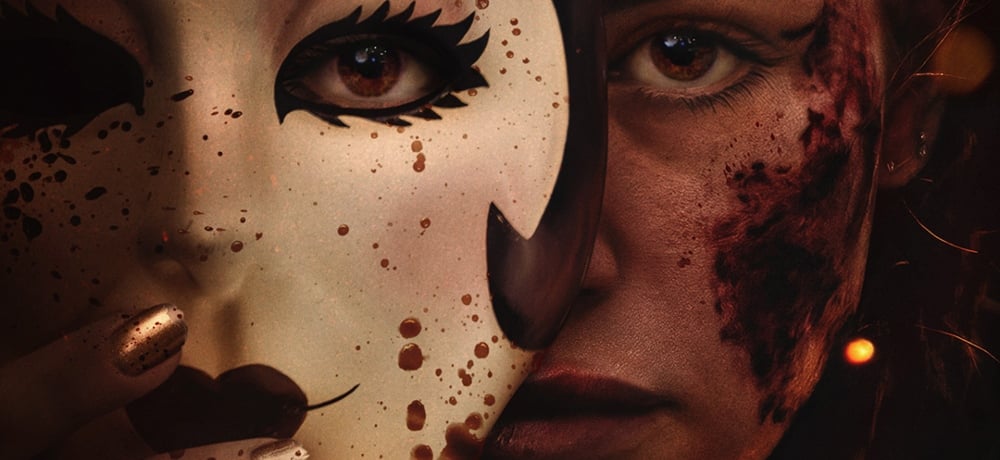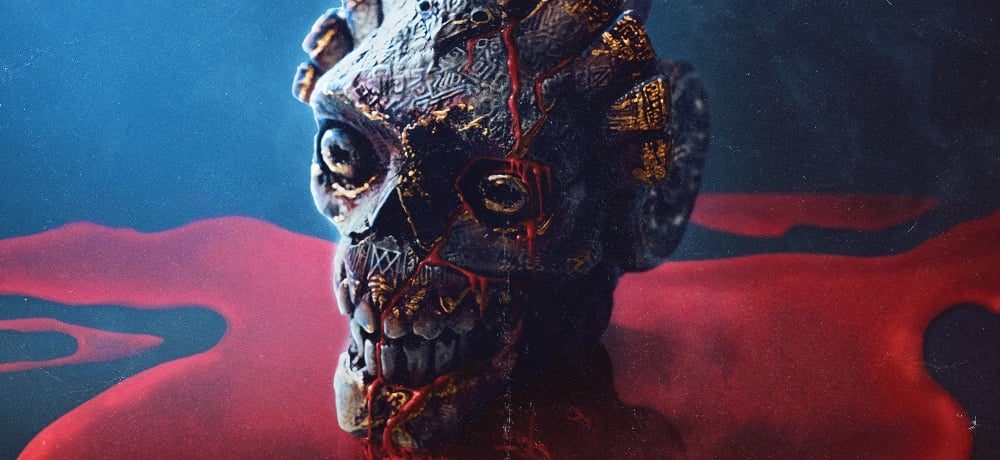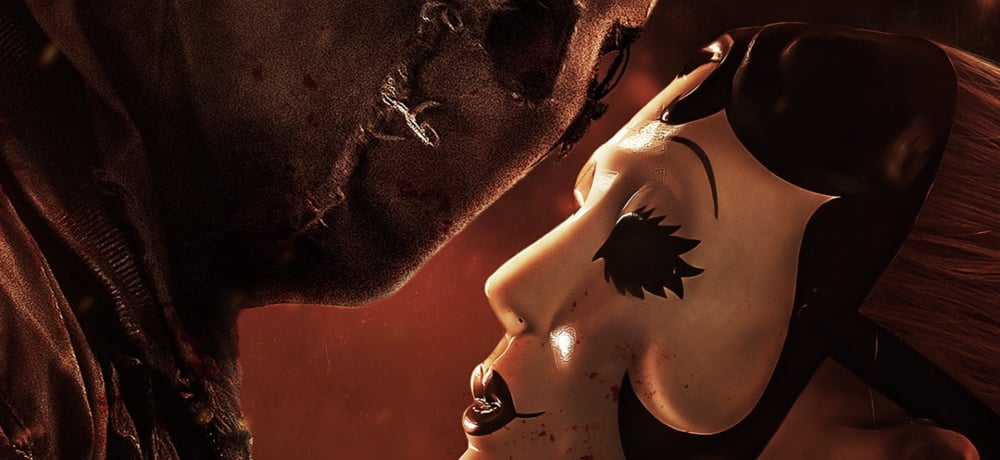





As far as feature film debuts go, writer/director Michael Pearce has crafted something truly special with Beast, a psychological thriller/drama that explores the darker aspects of human nature and just how far one may go for the sake of love and acceptance. Following two outsiders who find solace within each other, Moll (Jessie Buckley) and Pascal’s (Johnny Flynn) complicated relationship is front and center in Beast, and becomes tested in unimaginable ways once Pascal is suspected to be a killer who recently targeted a young teenage girl in their tight-knit community.
Daily Dead recently had the opportunity to speak with Pearce about his approach to Beast, and he discussed how a real-life serial killer inspired his first feature and how he decided to take some well-known fairy tale tropes and subvert them with his thought-provoking script. He also chatted about tapping into the carnal aspects of love and much more.
Beast arrives in theaters this Friday, courtesy of Roadside Attractions and 30West.
Congratulations on Beast, Michael. This film hit me so hard. There is a lot of really interesting stuff that you explore here. There are these ideas of being isolated in your own community and at home, as well as the desperation for love and affection that many of us have been faced with at some point in our lives, and the terror of finding somebody to connect with on a human level that may not necessarily be who we think they are. What was it that inspired you to tap into these things for your script, and then weave all of it into this mystery that is front and center in the film?
Michael Pearce: So, I'm from Jersey (part of the Channel Islands), and I grew up on this island. I remember there being this true crime case I had heard about when I was a kid. There was this guy called “The Beast of Jersey” that committed really horrific crimes in the '60s, and he got away with it for 10 years. That made a really big impression on the island, and even when I grew up in the '80s, it was still like a specter that haunted the island. It almost became part of our folklore, so I just dug into that story at the beginning of the writing process, but I didn't want to do a kind of factual retelling of those events. I didn't feel like we needed a Zodiac rendition of what happened all those years ago.
But I was really interested in the fact that this guy had a wife that never knew about what he was doing, and how duplicitous psychopaths can be. They can live very functional lives, and I was just very curious that we hadn't had that experience in the cinema very much. I feel like when I’m watching a story like this in a movie, I generally know who the bad guy really is, and in reality, these guys often flew in the face of all the research, because they can live very functional lives without giving anything away. They can have marriages for decades. They can have children and they can also go out and commit these crimes, and I found that to be so confusing. So, this film was an attempt to explore that.
Anyway, I wrote an original story that referenced a lot of fairy tales, about a seemingly innocent young woman, trapped within a dysfunctional family and she ventures into the woods and she meets a character that might be Prince Charming, or it might be The Big Bad Wolf. I was using these platonic, fairy tale archetypes to build the story, and I was also digging into my own impressions of growing up on the island of Jersey and how it can be a place that is incredibly idyllic, almost paradisiacal. It's so quaint and safe, but it’s an environment that you also feel trapped by. I felt quite suffocated when I was a teenager. I just wanted to get out of there as quickly as possible, and that also fed into the story, where someone feels trapped by multiple prisons. Trapped on an island. Trapped within this hostile family environment. Trapped within a dysfunctional relationship with their mother. Trapped by their own guilt.
It's also this love story that's blossoming into a potentially nightmarish scenario, and this balance in that love story that makes it feel enchanting and seductive and elemental. And then as you mentioned, I also wanted to explore what we do for love and who we love and why—what we might sacrifice in our morality for love. We all think we're incredibly moral people with a very strong sense of right and wrong, but that often goes out the window when we've fallen in love, because the power of that feeling is so immense that it eclipses everything else in our lives. That's a beautiful and really frightening thing at the same time.
It’s so easy to fall in love with Moll and Pascal in this film because of the way society treats them both as outsiders. I think many of us can relate to being treated like an outsider at some point in our lives, and there are some really great "big" moments between their characters, there are some really great quieter moments, too, that really help give their characters’ relationship a solid emotional center. Can you talk about finding those quiet moments in this?
Michael Pearce: I really wanted to try and look at the characters through the prism of our species and how we're animals. The title refers to that as much as it does a fairy tale. I was thinking about how much, when you're falling in love especially, it's such an animalistic thing. Whether it just means the carnal aspect of sexuality, or that you're so taken in, seduced, and intoxicated by someone's smell that can have such a powerful effect on who you fall in love with, and how intensely you fall, and even for how long it lasts. Love is such a playful thing. You're constantly touching and caressing and stroking and that feels very animal-ish to me. You see animals and they're constantly engaged in that way, so I didn't want this film to be too dense with dialogue.
I wanted it to feel more like they were spontaneously raw and it’s this alchemic thing. You're magnetized to each other. Your bodies are magnetized towards each other and that was the angle we were trying to frame it as opposed to it being someone swooning the other person with being overly romantic or using too much dialogue. That’s also why a lot of that love story takes place outdoors. It's like they're two wild animals that have found each other. I think there are only a few scenes when you see Moll and Pascal indoors together.
As great as Johnny is in Beast, it really is Moll's journey through this film that drives the story, and Jessie provides the film with an outstanding performance. How was it working with her, and working through the intricacies of this character who isn’t always likable, but who is definitely relatable?
Michael Pearce: There’s this idea that she's a cog within the family, definitely. I knew that most fairy tales ended with a damsel in distress, and the prince comes along and saves her. I thought if this is an adult fairy tale, and it's a contemporary one, what happens if we started in that place and we went to somewhere more complex? What if we ended with this character who was going to be almost like an anti-heroine by the end? And we realized, the whole film, you could almost conceive of it as the origin story of an anti-heroine. I didn't want that journey and that transformation to be something that was too simple in terms of it being an empowerment story of a woman that comes to power. If she's going to come to power in this way, and she has to fight these monsters, there's got to be something that's actually very conflicted about that and she's got to be carrying around a lot of baggage that we question.
I love that idea that we can have a tension about the protagonist, and what they're capable of, and you don't know whether their power is going to be something that helps save them or condemns them, and maybe at the end of the movie you have to continue to work on that. I just always love movies that put me in that place, that kind of paradoxical place in terms of the character slaying the dragon. You're left conflicted because it's never simply heroic.
At the end of Taxi Driver, Travis Bickle saves the young girl and he kills that bad guy, but we know that there was something very dysfunctional about him. Michael Corleone becomes the head of the family in The Godfather at the end, but we're also witnessing the birth of a psychopath. I love when you're made complicit in the journey as an audience member. You get behind it. You're seduced to be behind these characters, but you're also left with this conundrum at the end, because it's never just a simple story. And I don't feel like we've seen enough female protagonists go through that journey.
Of course, we've seen many more women now being action heroes, and that's great and that does contribute to the culture in a very substantial way, but my interest is in developed female characters that have the same sense of complexity that your favorite male characters in cinema do, and I really felt we needed to be confronted with the worst idea of what Moll might have done in her past.
I love seducing an audience and getting them complicit with a character and connecting them to a character and then a few scenes later, complicating that and going, "Okay, but now the character's going to behave in a way that challenges you. Can you still connect to them?" That identification becomes more conflicted as the story goes on.